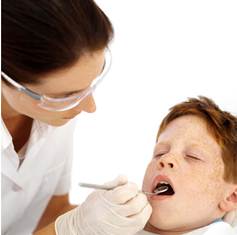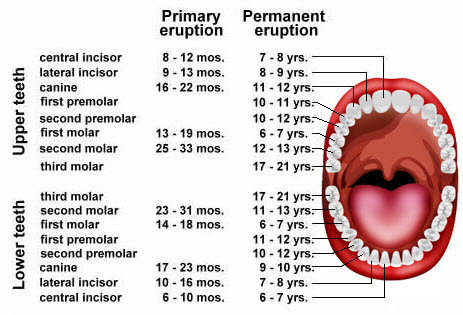Regular Checkups
A regular dental checkup seems so simple, yet some people do not realize the importance of it. An examination by your dentist twice a year can help prevent gum disease and detect small, easy-to-fill cavities. Regular checkups can maintain good oral health as well as good physical health. Studies show a correlation between gum disease and heart disease. Also, regular checkups can prevent oral cancer and detect any dental problem at an early stage. In the long run, you can save money by avoiding expensive restorative work down the road.
Terminology
What are the differences between veneers, lumineers, composites, bondings, caps, and crowns? Today there are so many dental terms out there. It can be confusing when you want to relay to the dentist what you are interested in. Hopefully, this page will help.
Caps and crowns - These are two words for the same thing. Both of these will cover the entire tooth in different situations. A crown is the more commonly used term. A crown is necessary to restore an implant. Also, many times, crowns are recommended after a root canal because a tooth becomes weak after being deprived of nutrients and blood supply. The original tooth is cut down and shaped for the crown to fit properly. It is not reversible. Crowns are also recommended for aesthetic purposes or to replace a tooth broken down from trauma or decay.
Veneers and Lumineers - These are also two words for the same thing but a "Lumineer" is a brand name. As the name implies, veneers and "Lumineers" are very thin coverings over the original tooth. They are recommended for aesthetics or broken down teeth. Usually, the original tooth is cut down only very slightly. Many times it is not reversible, however, "Lumineers" claim that many times no tooth removal is necessary under certain cases.
Composites and Bonding - Again, these are two words for the same thing. Composites are metal-free and mercury-free. They are indicated when there is decay on a front tooth. They are used for small repairs on chipped teeth. Additionally, new technologies with stronger materials allow these to be used for fillings on the back teeth.
Children's Visits
 A child's first visit should be between 2 and 3 years old. The first visit is usually very short and involves very little treatment. We STRONGLY believe that a successful first visit is very important for a child trusting the dentist. If preferred, the parent may hold the child. They get a ride on the chair and they are shown the dental mirror and "counter." Their teeth are counted and an exam is completed. If the child is comfortable, a cleaning and fluoride or varnish is applied to the teeth.
A child's first visit should be between 2 and 3 years old. The first visit is usually very short and involves very little treatment. We STRONGLY believe that a successful first visit is very important for a child trusting the dentist. If preferred, the parent may hold the child. They get a ride on the chair and they are shown the dental mirror and "counter." Their teeth are counted and an exam is completed. If the child is comfortable, a cleaning and fluoride or varnish is applied to the teeth.
Tips for the 1st visit: Speak positively about the dentist, make it fun, read books about visiting the dentist, act out what the dentist will do.
Preventive care is one of our core values. Dental education is one of the keys to successful preventive care and the parent plays a major role in the child's dental education. Limit snacks, encourage brushing and flossing (when necessary), rinse teeth with water when brushing is not available, and avoid sticky foods and candy.
Baby teeth will naturally be replaced with adult teeth, but this should never be an excuse for not maintaining them. A child's ability to properly chew, bite, and speak depends on the proper maintenance of baby teeth. Additionally, proper spacing for the adult teeth depends on how well the baby teeth were cared for. Finally, and equally as important, a well maintained smile will positively impact a child's self-image in his/her critical years, which has been shown to increase a child's self-confidence now and later in life.
